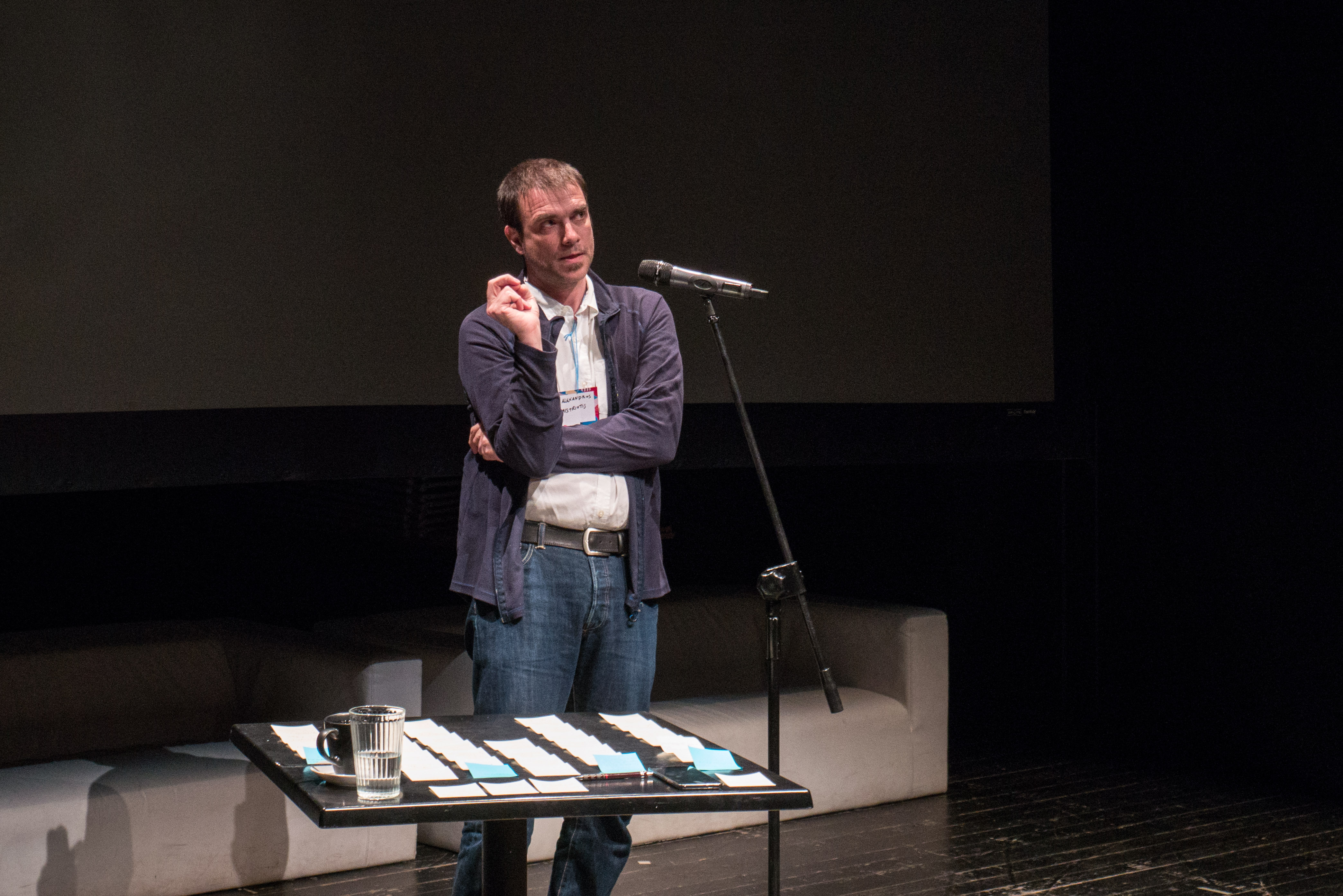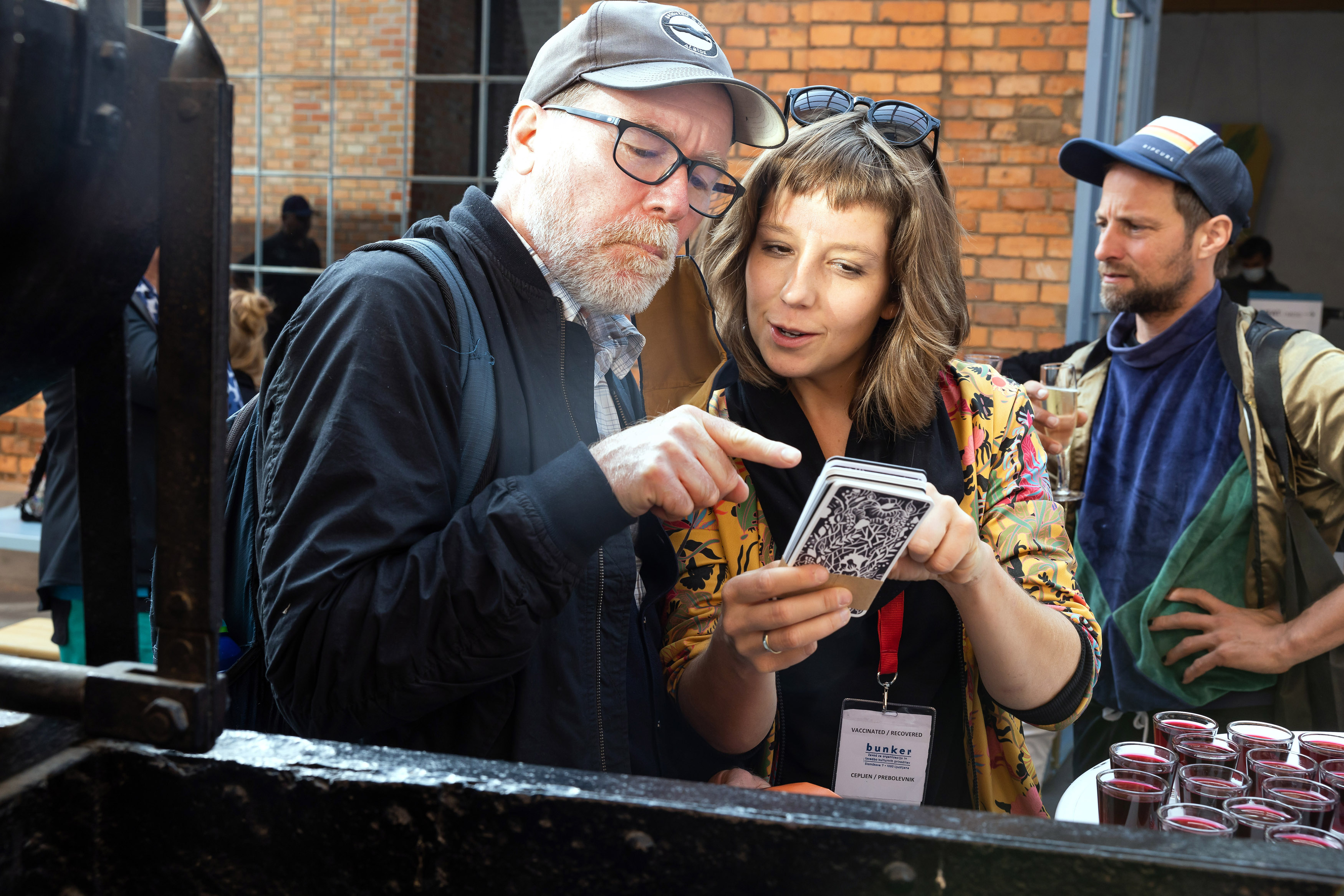
Audio

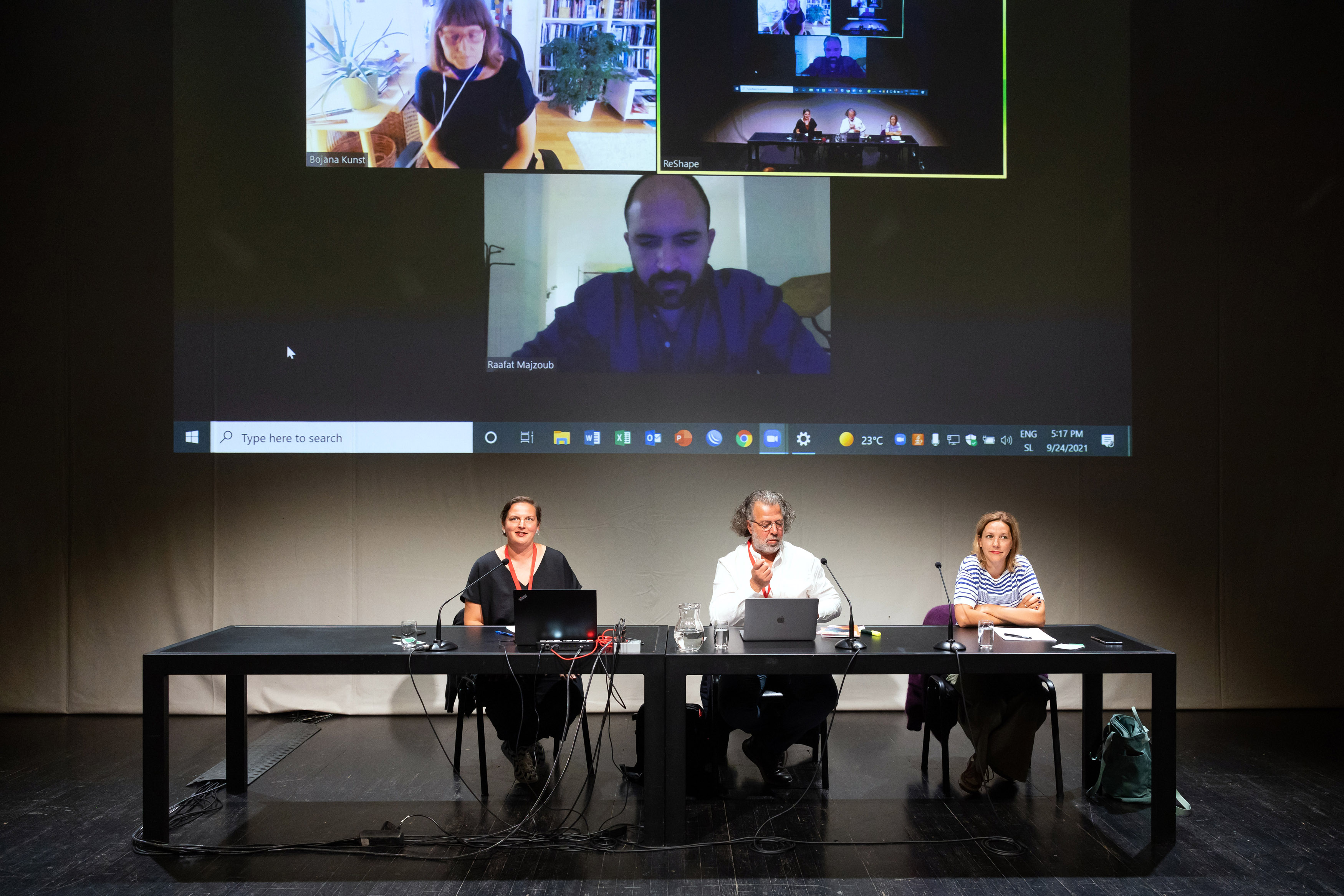
Contesting the Neutrality
The topics of decolonization and degrowth are certainly not new, but with the recent global movements, they are receiving increased attention and a sense of urgency. The same sense exists within the art world, where the necessity for decolonizing cultural institutions is followed by the requisition to go beyond the performative level and to rethink the role of institutions and implement change at the structural level.
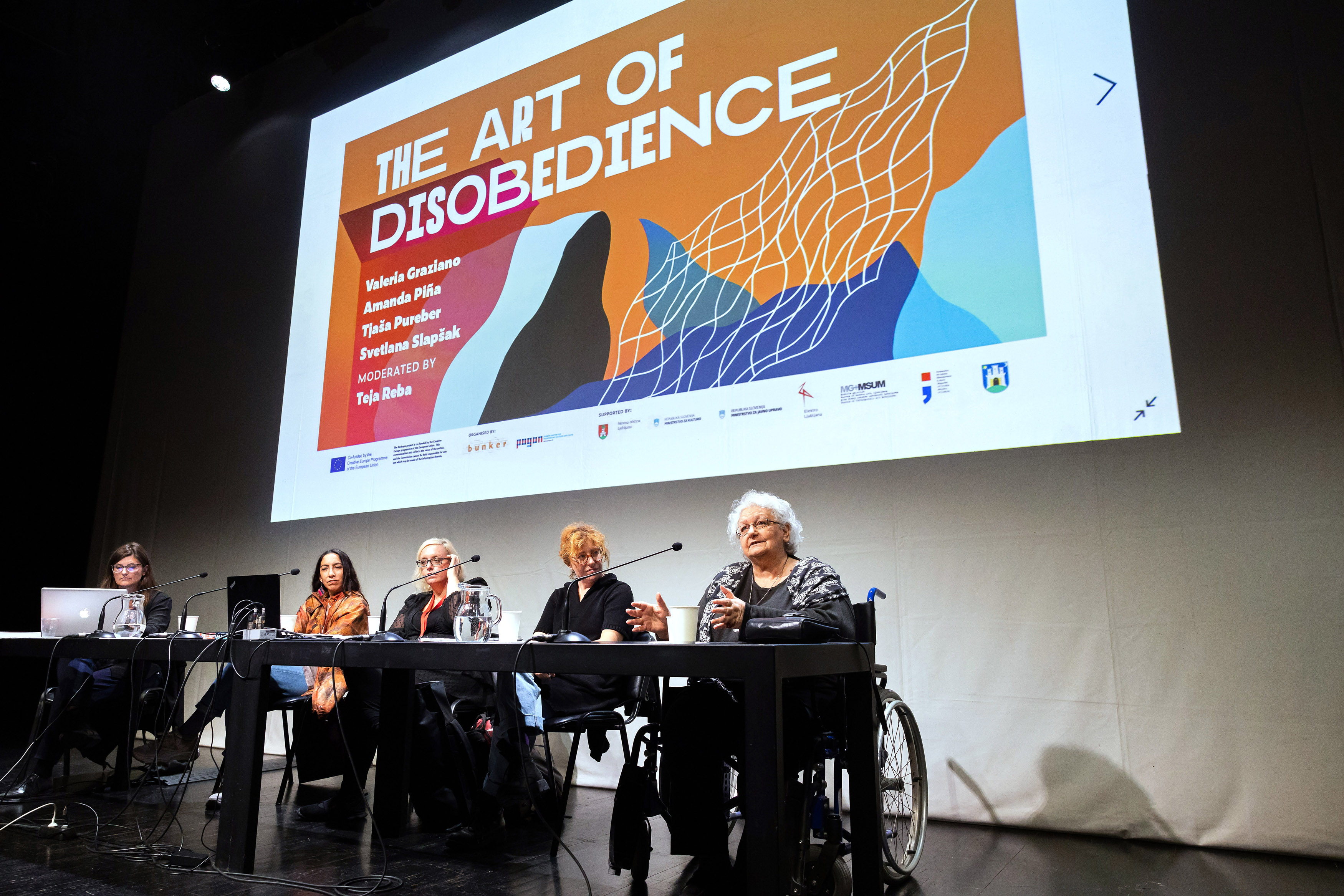
Disobedience means change
If culture is a set of invisible customs, rules and regulations pertaining to our society, can we view art as a way to question, break and reinvent them? Should artists be a force of disobedience, calling out for changes in the existing order of things? Can an artwork invite its audience to a space of shared concern, and function as an act of disobedience?
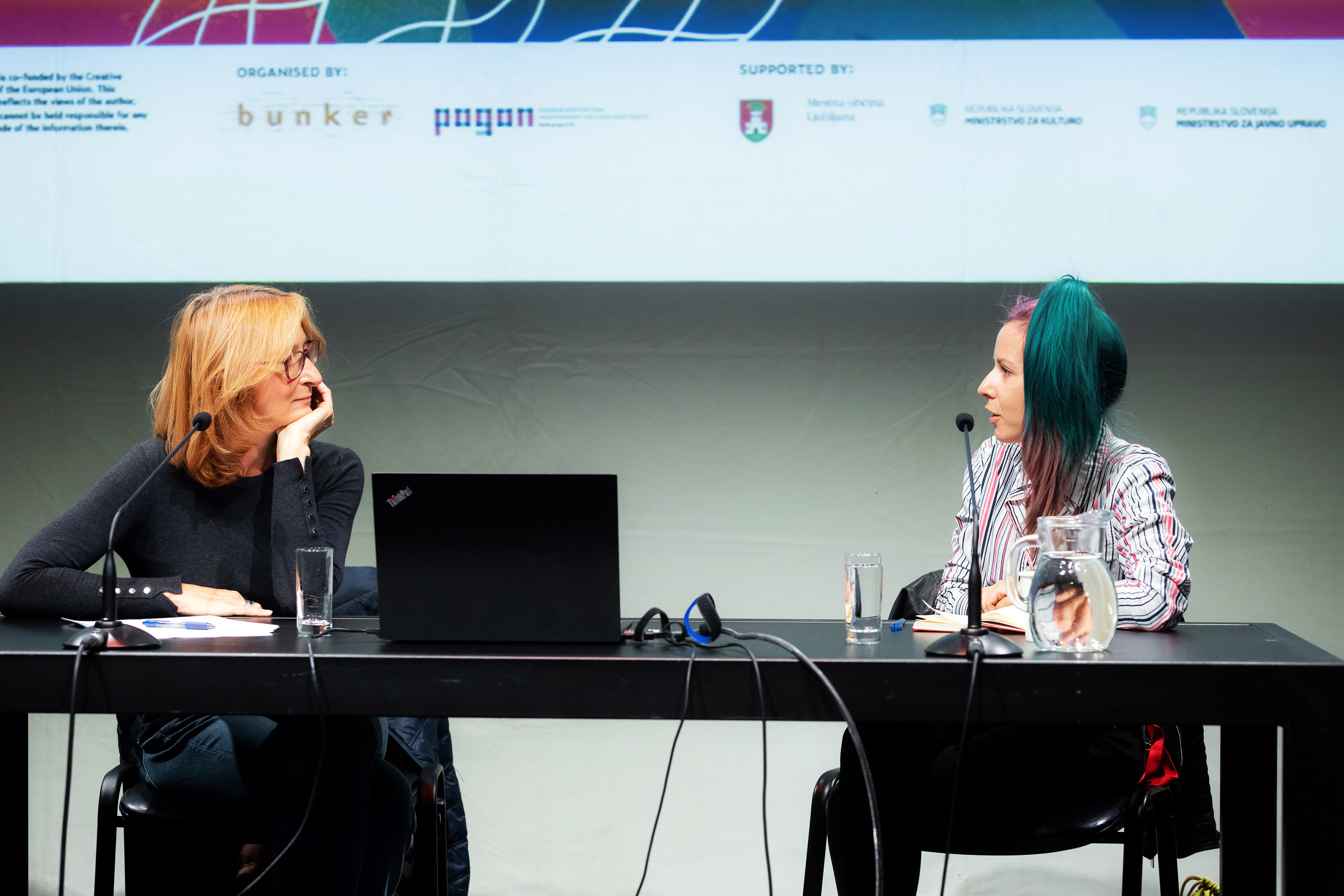
Alenka Zupančič: The End of Fantasy Versus the Fantasy of the End
For a long time, we were living in a configuration best described as being caught between two ends, expecting the change that never comes. This “end that couldn’t end” on the one hand caused a sense of hopelessness, almost ontological fatigue, and on the other hand, it fueled the fantasies of the end that imagines it through some sort of catastrophic scenario - thus actually maintaining the status quo.
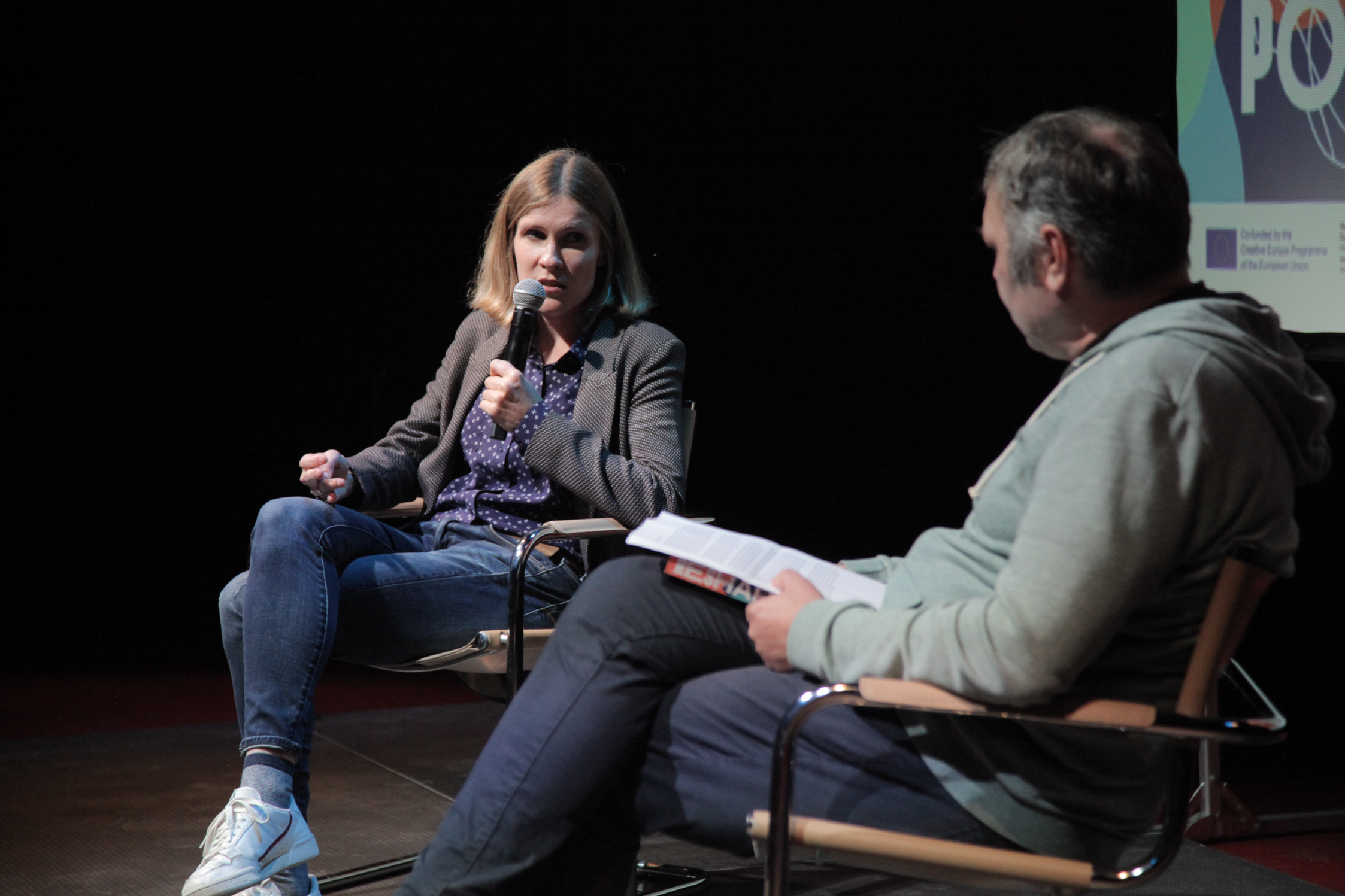
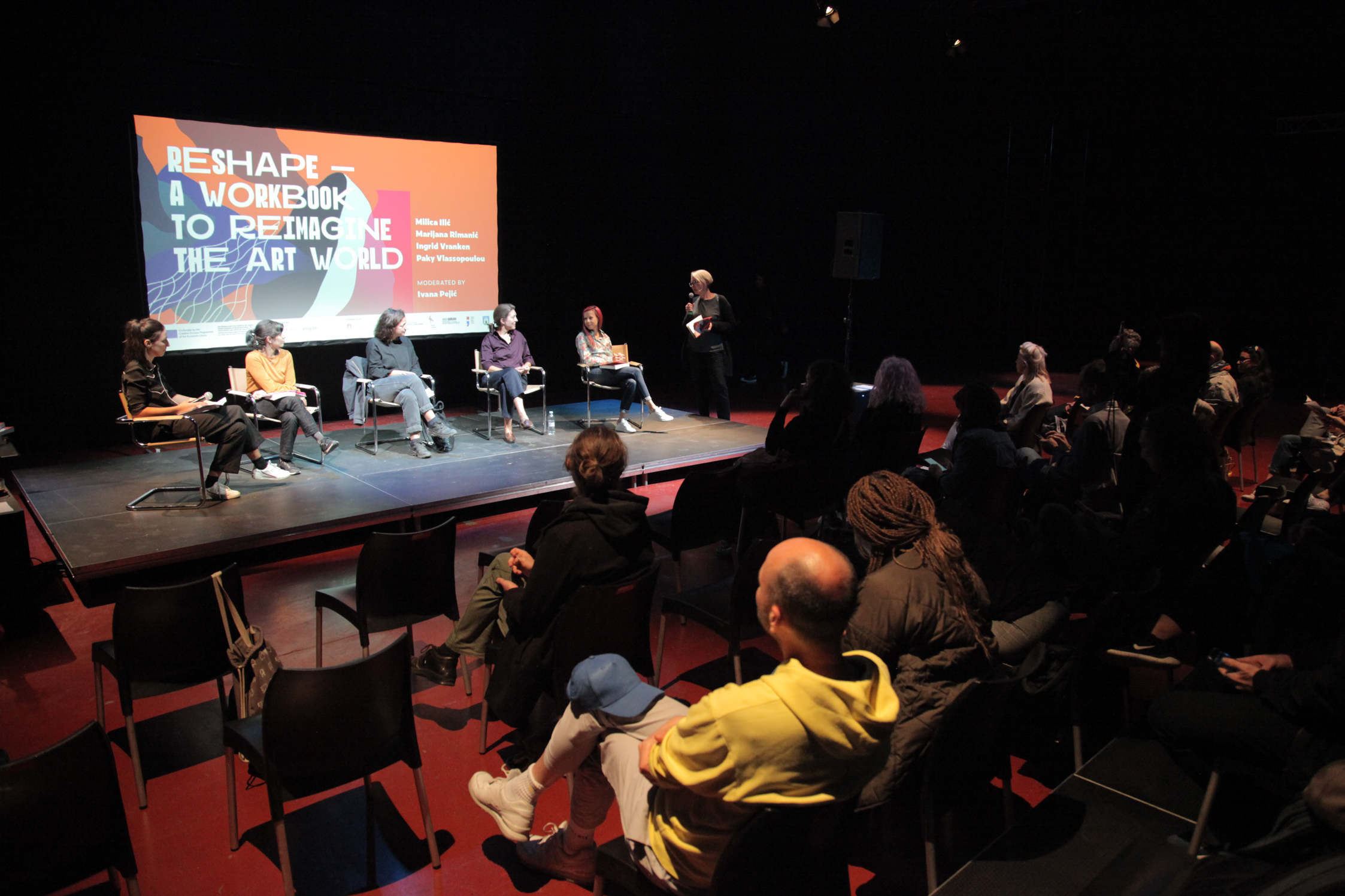
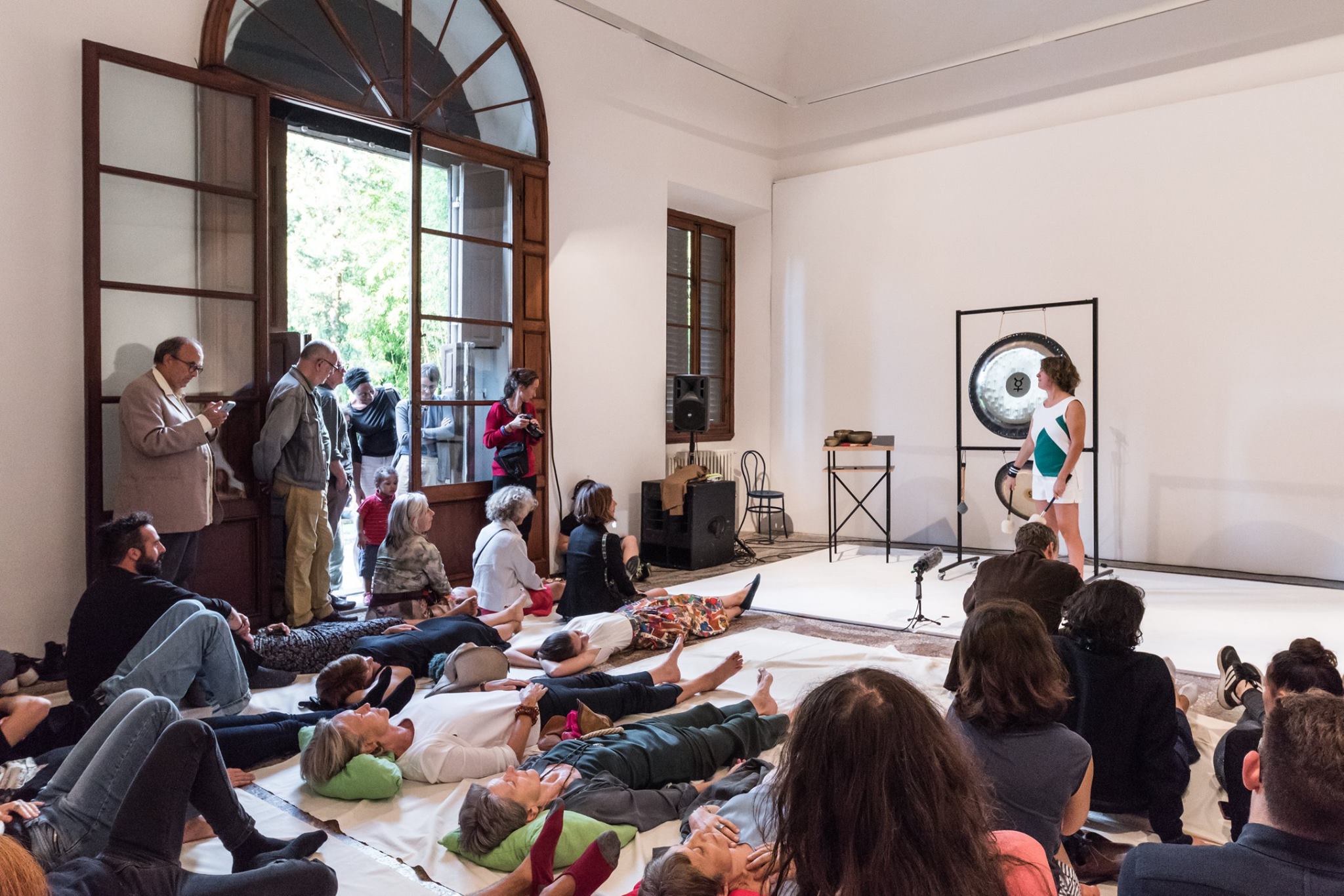
Radio is a Social Medium
Created 15 years ago, Radio Papesse is an online audio archive devoted to contemporary art and a place for the documentation and the articulation of a critical discourse around the visual arts. At the same time, it is a platform that brings together artists, musicians and producers and opens up space for interesting projects of sonic storytelling. Its creators, Carola Haupt and Ilaria Gadenz entered the radio venture at a time when it was quite marginalized, if not obscure medium but, in the meantime, new audiences have discovered its various potentials. In conversation with Ilaria we learned more about the radio as a medium in presenting contemporary art, but also as a tool for community building, especially in times of social isolation.
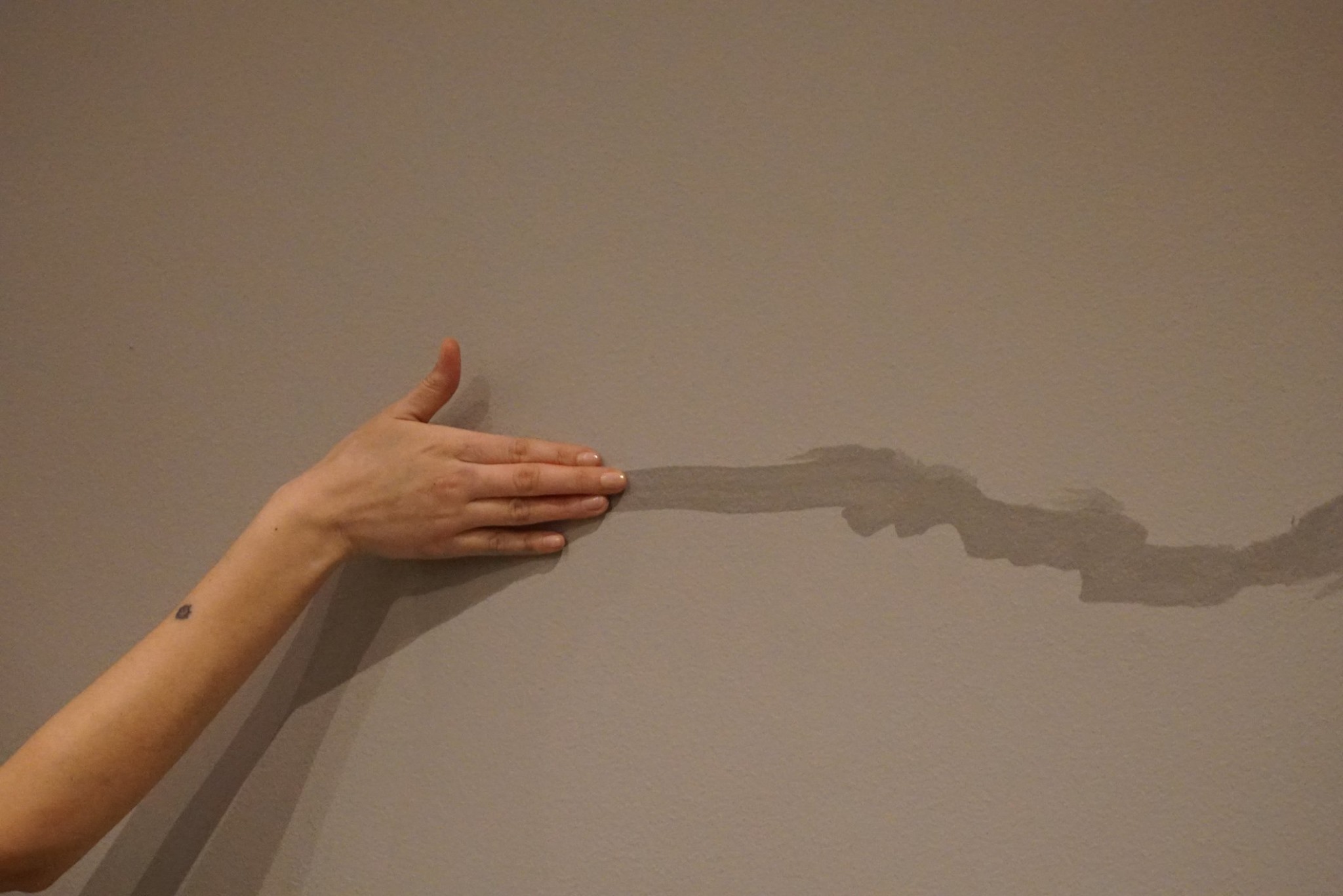
Metod Fund: Reshape the institutions!
Based in Kiev, Method Fund was founded in 2015 by a diverse group of artists, curators, critics, architects and educators. Their founders — Lada Nakonechna, Olga Kubli, Tetiana Endshpil, Ivan Melnichuk, Denis Pankratov and Kateryna Badianova — describe it as an experimental self-educational project, focused on searching the form of an art institution that would meet the requirements of the present as well as the peculiarities of the local context. We’ve met via zoom with Lada on one screen and Olga, Ivan and Tetiana on the other, to talk about their views on institutional experimenting and reshaping.
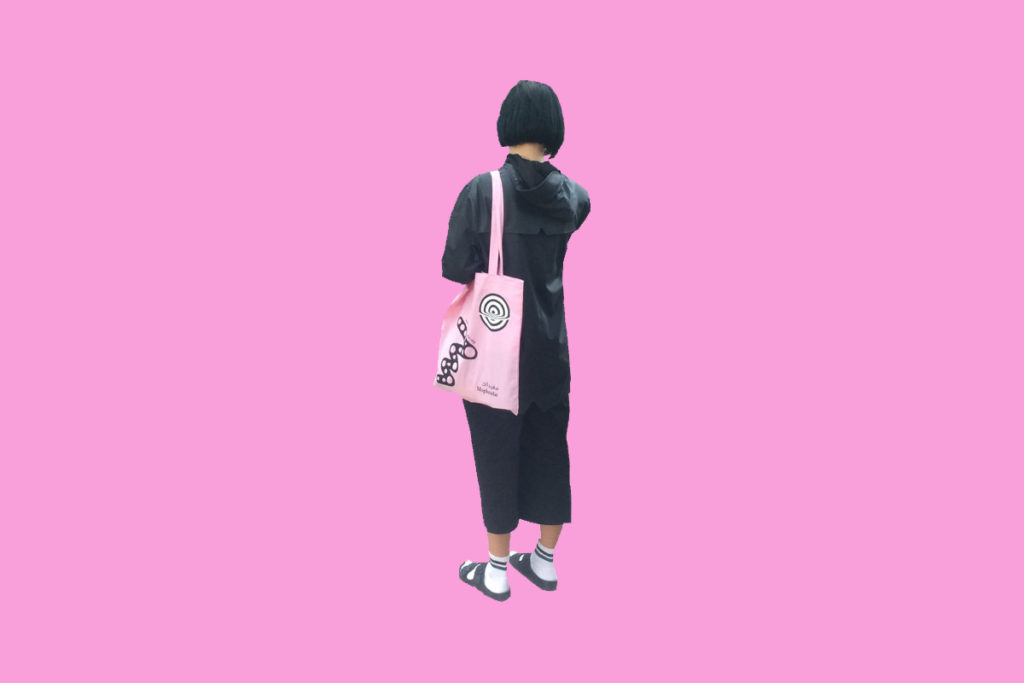
Mophradat - reinventing of articulations, discourses and meanings
Krystel Khoury presents Mophradat, an art organization that seeks to create opportunities for artists from the Arab world - a loose geographical determinant to which they approach in its full diversity and complexity. Located between Brussels and Athens, Mophradat is developing an innovative approach to funding, commissioning, collaborating, and gathering.
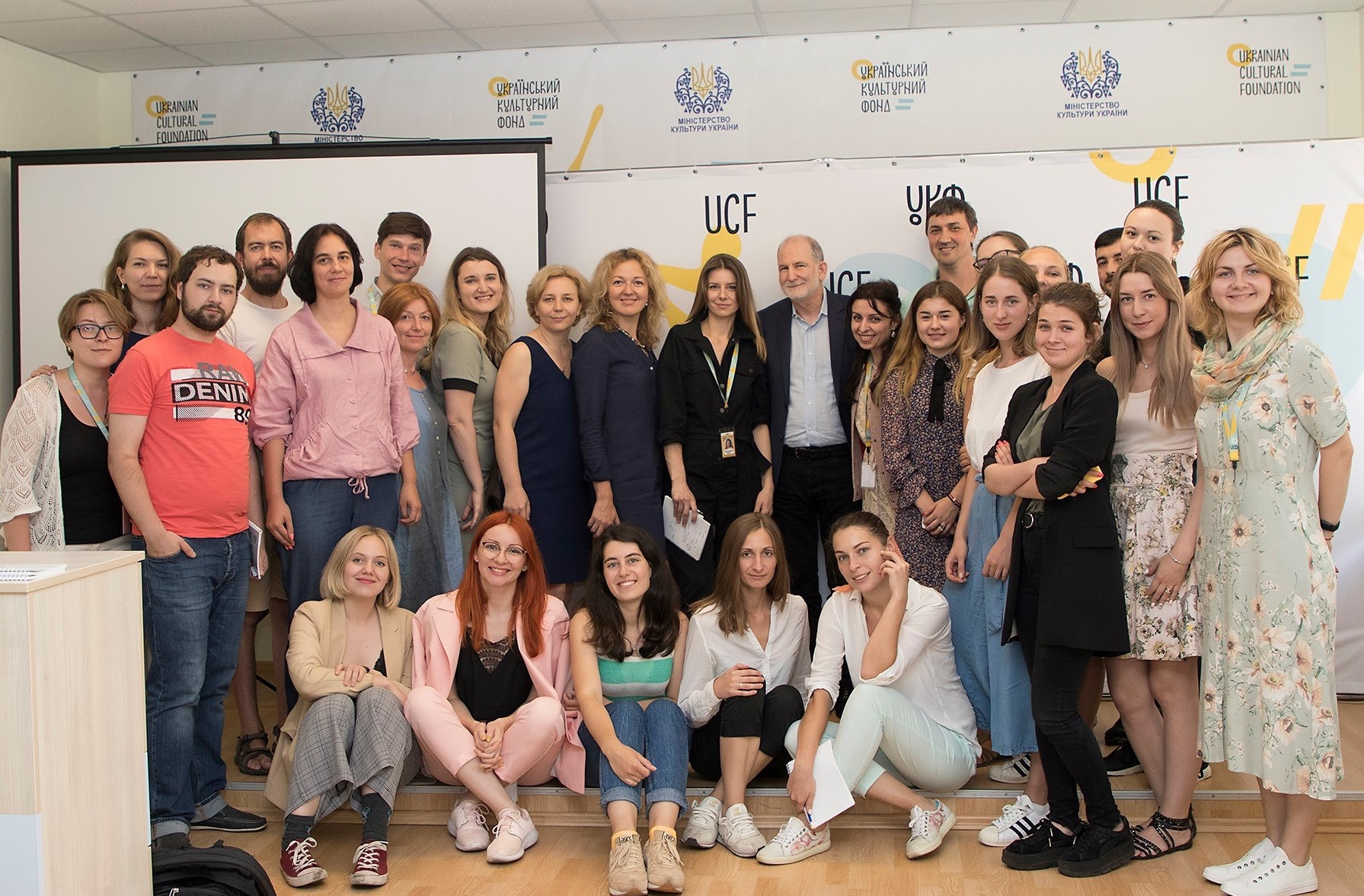
Culture in the state of crisis- a conversation with representatives of Ukrainian Cultural Foundation
Just like all around the world, the COVID-19 outbreak has shaken the cultural sector in Ukraine, a country that has been struggling with an unstable political situation for a while now. The rise of cultural life after the Dignity Revolution of 2014, was soon accompanied by the establishment of the Ukrainian Cultural Foundation - the state institution that introduces new mechanisms of funding for initiatives in the field of culture and creative industries. Thanks to the UCF, the non-governmental sector was not left to fend for itself during the pandemic, as the foundation took on the role of a crisis manager, trying to adapt quickly to the new realities.
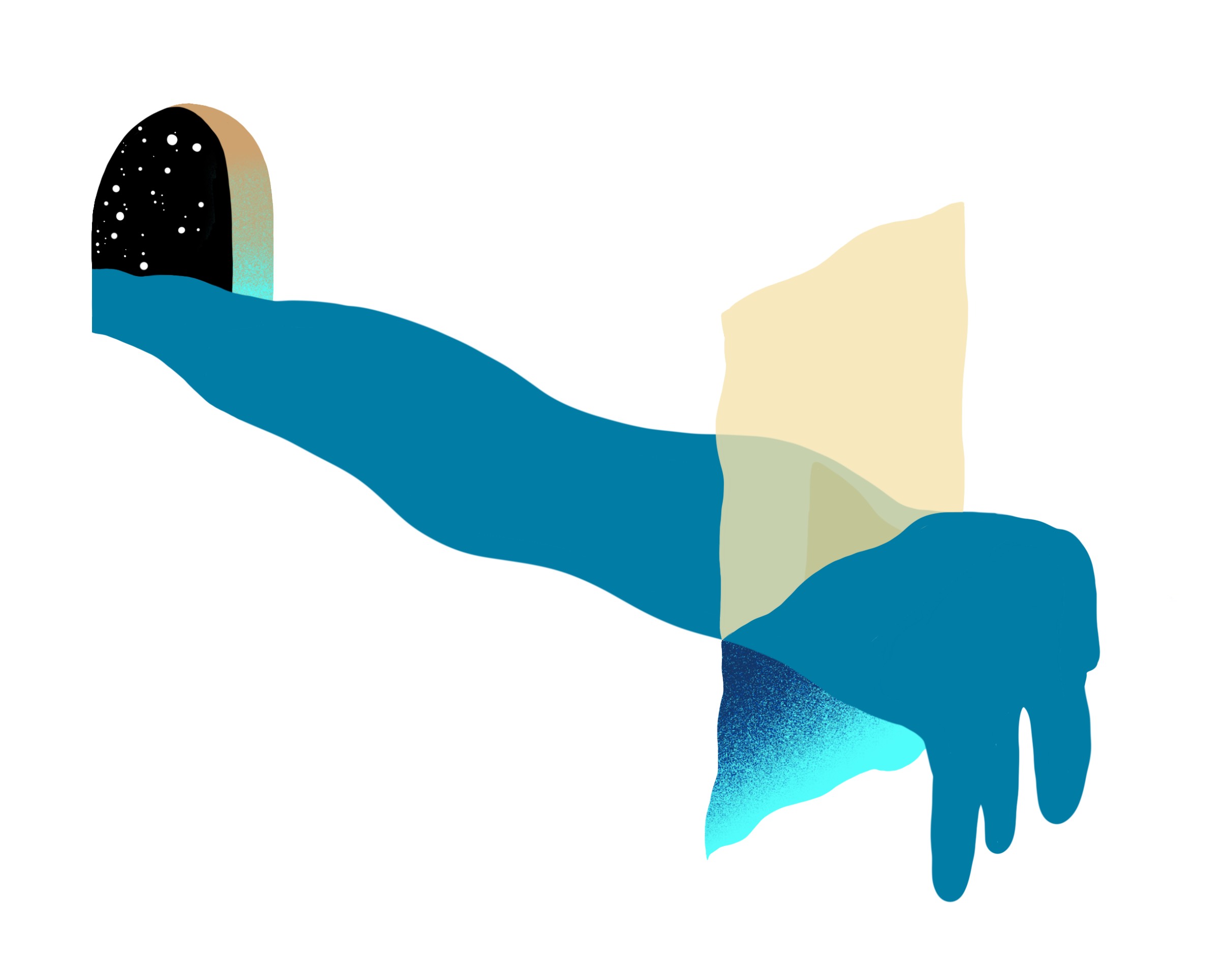
Artists are citizens: active, creative and responsible
To be an artist without a political responsibility is also a statement. The artists gathered in the group emphasize their citizenship; social and political dimension of their individual, as well as collective work. The main focus of this group is to find that space of creativity, where they could use the imagination in the most expandable manner, but also keep active. Due to the recent COVID 19 crisis, the artists stress the importance of their activist work, but also of collaboration/empathy as one of the most powerful tools of art in general.
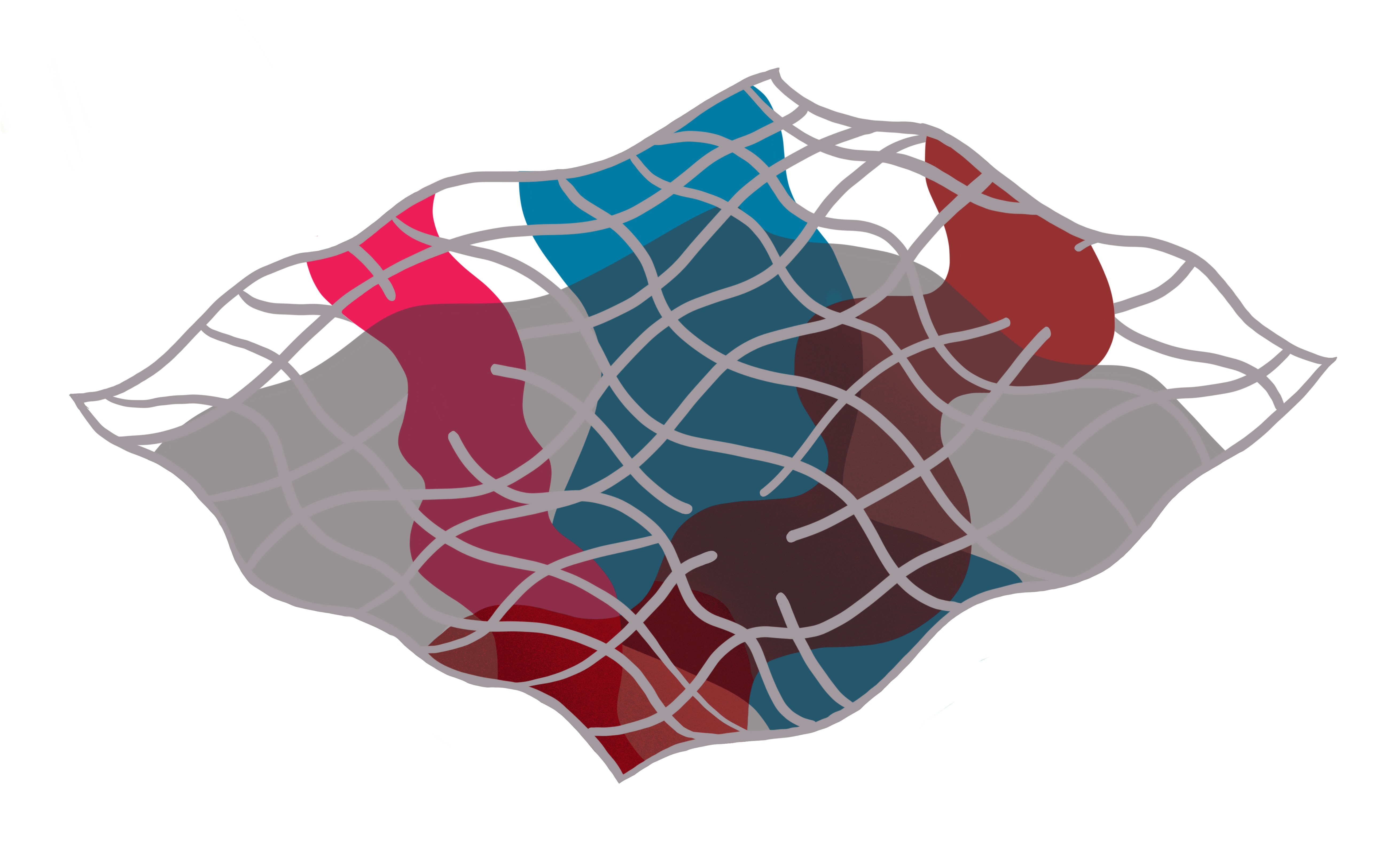
Trans- and post- instead of national: Mobility of artists now and before
Being an international community of artists, cultural workers and curators, this group was interested in concepts of “trans” and “post” when discussing mobility as way of living and creating.
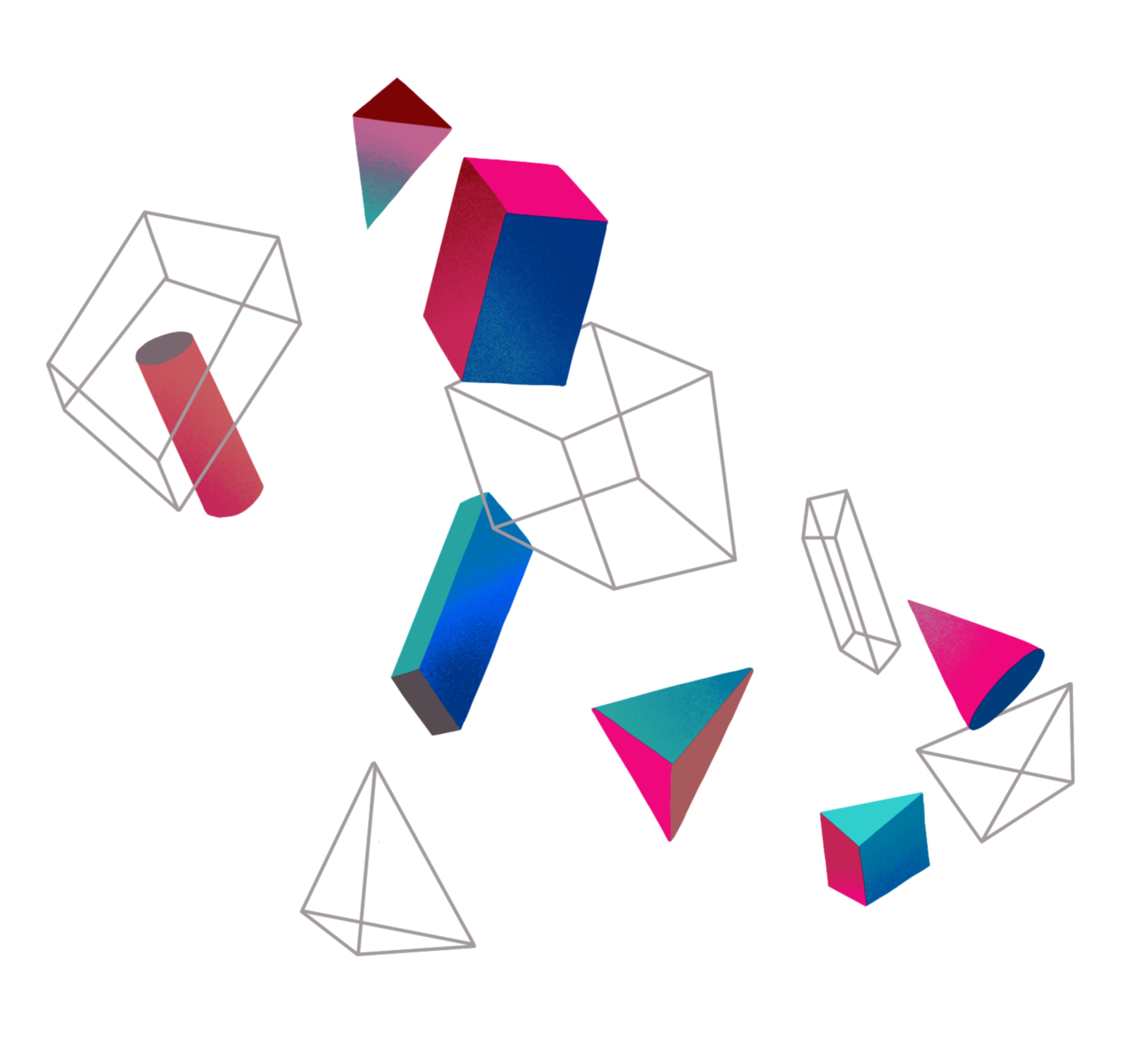
Fair Governance: Where Are We Now, and Where Should We Be?
Fair governance is highly applicable subject of discussion within independent cultural organizations. It consists from set of values which, when applied to particular governing within a group, refer to how participants govern this group, what values they want to provide, but also open question self-governance, self-facilitation, the responsibility of each member. The group sets up different tools of fair governance. What is fairness and what does it mean not only in arts and culture, but also in a more global context of relations? How do we govern now, how can we govern in the future? Can fair governance exclude classical resources, such as funding?
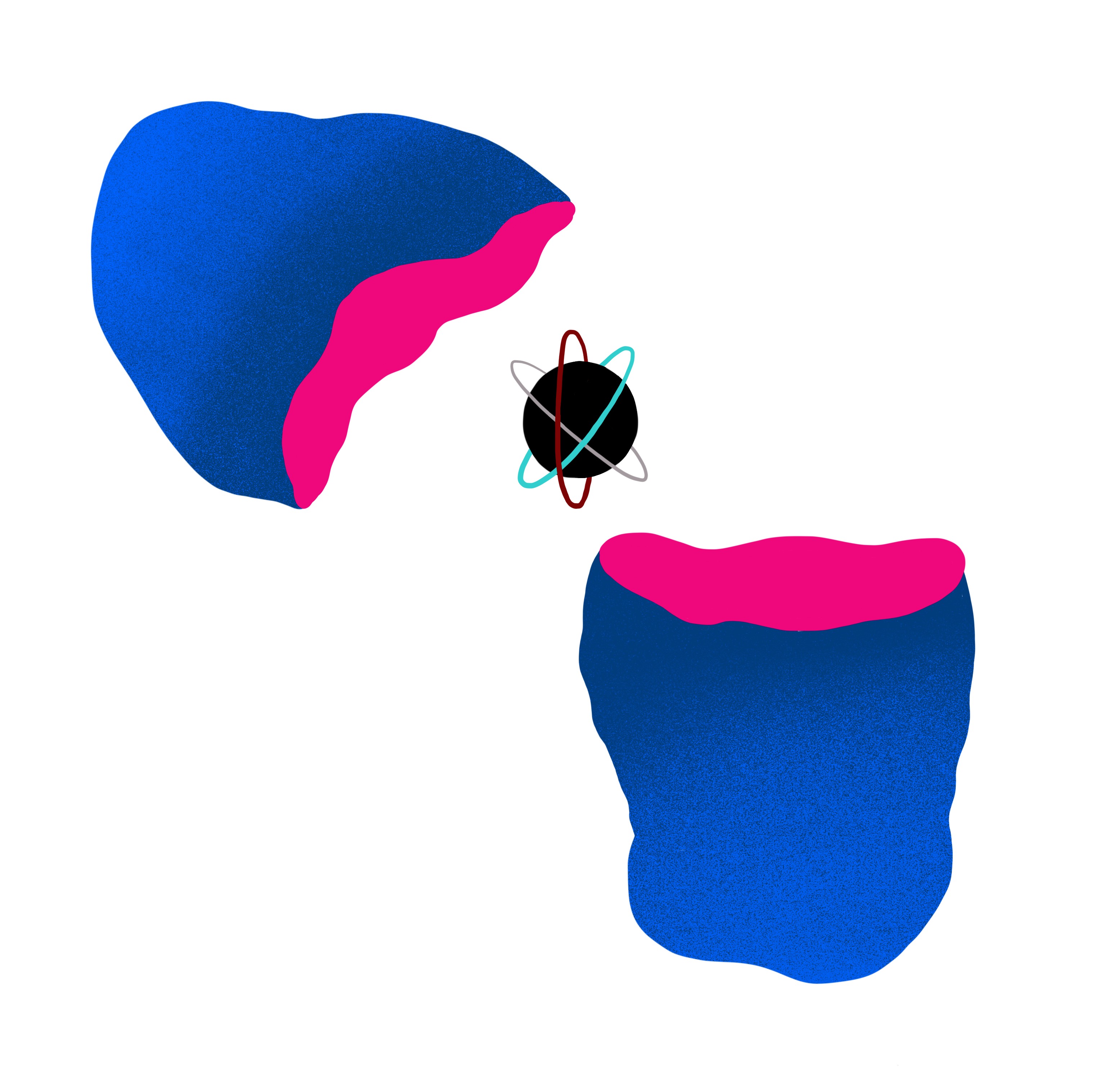
Value of Art in Social Fabric: Wide Field and Complex Questions
Role of art in society considers complex relations between artists, public, media, founders and institutions. It is determined by different social and political contexts, but also by individual artistic practices. The group has opened different theoretical questions in order to establish a framework which would impact their artistic and living environment. The main keywords were: equality, solidarity and sustainability in-between mentioned instances: artists, founders and institutions, and people.
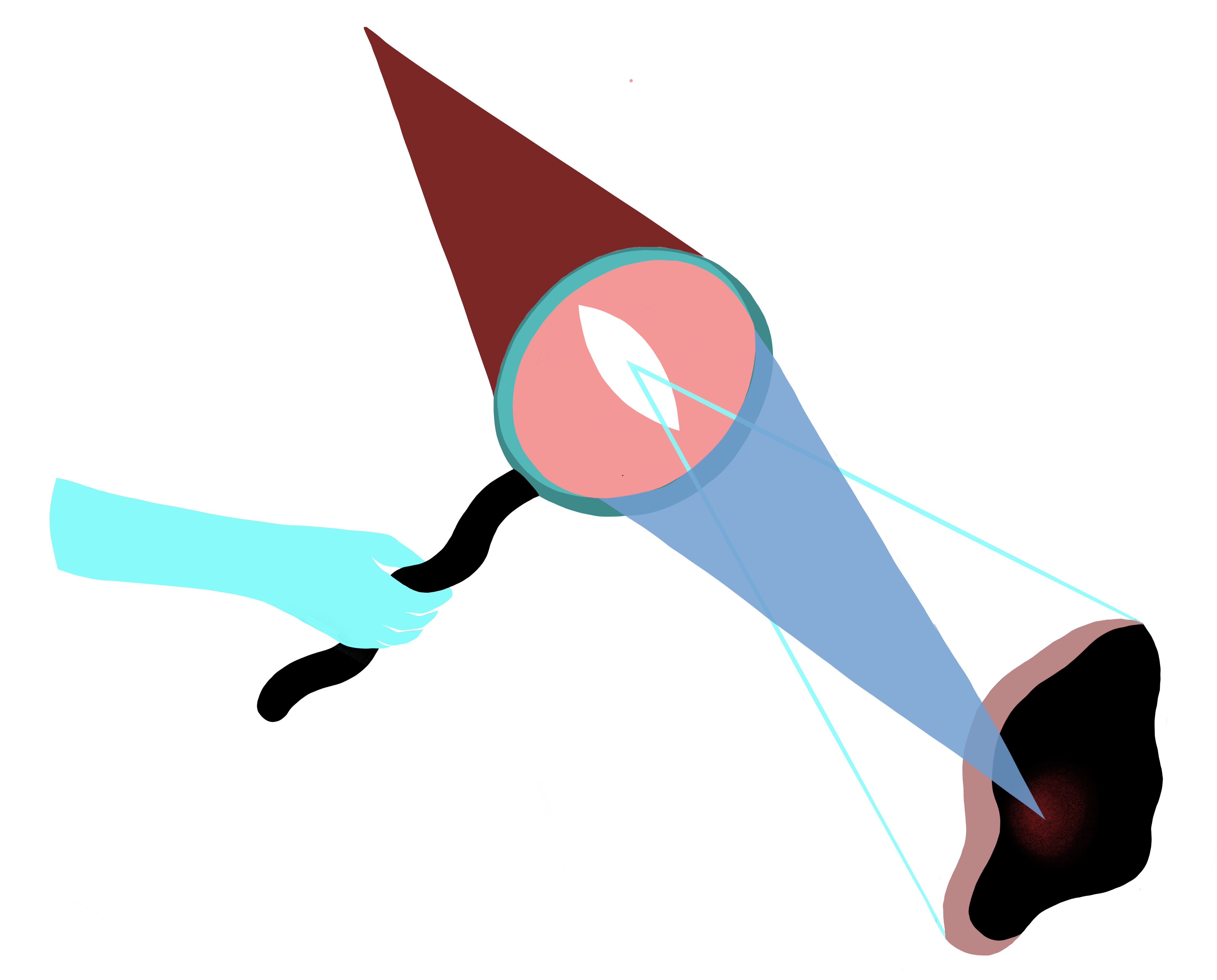
Solidarity Funding: Western European Dominance
Solidarity is a complex construct which can have many different perspectives due to individual belief, social, ethnic and cultural background. When it comes to solidarity in funding, it is mostly Euro-centric interpretation of the financing which refers mostly exclusively to Western and Northern Europe. The group extracted six prototypes of solidarity funding: solidarity manifesto, game, solidarity tax on Creative Europe funding which would be directed to the non-eligible states, social network based on solidarity and b'n'b platform opened for non-artist which would serve as basis for mobility fund.

A conversation about Reshape at La Lleialtat Santsenca guided by La Fundició and Radio Cava-Ret
Listen to the radio talk about the Reshape project that was made in Barcelona during the Art and Citizenship workshop. The radio talk took place at Lleialtat Santsenca and was guided by La Fundició and Radio Cava-Ret.
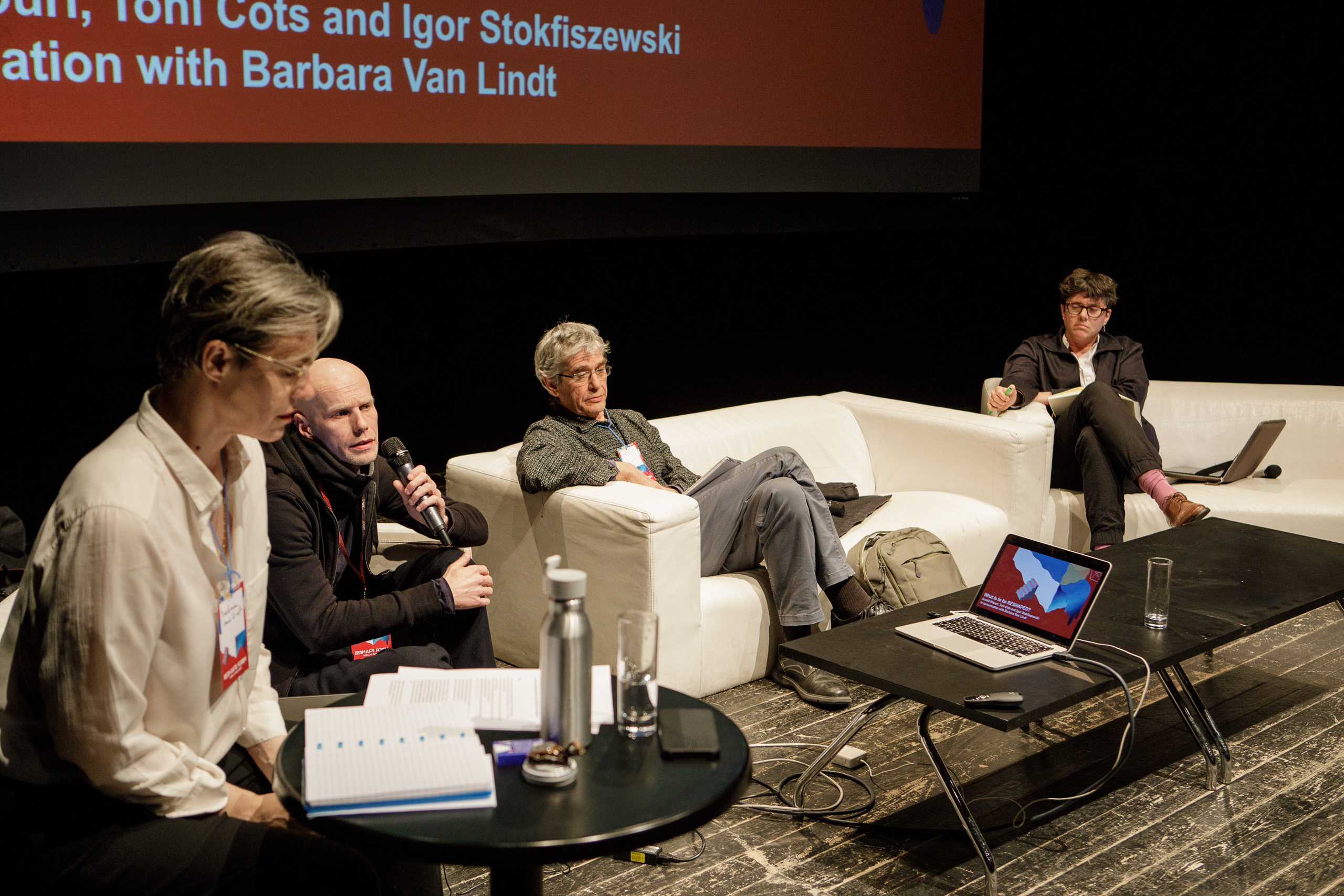
Audio Podcast form Lublin Forum // What Is To Be Reshaped, panel discussion
Toni Cots, Igor Stokfiszewski and Amahl Khouri in conversation with Barbara Van Lindt about perspectives of artist, art workers and policy makers in Europe and South Mediterranean.
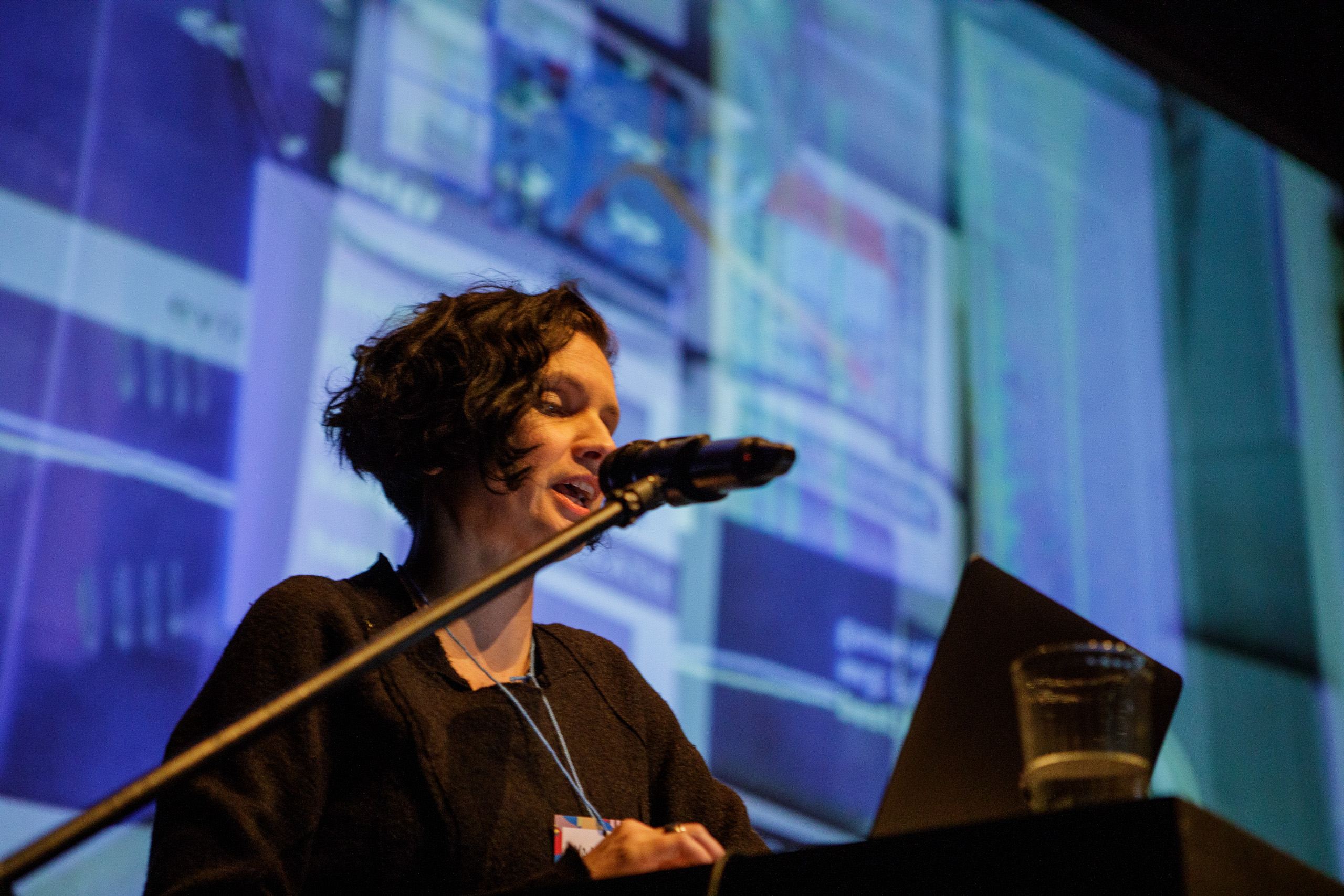
Podcast form Lublin Forum // Maja Kuzmanović: The Art of Futuring. Unknown, unknowable & uncertain
The complex uncertainties of our times make engaging with futures increasingly challenging. What could encourage proactive engagement with these challenges? The various approaches to uncertainty found in futures studies offer some starting points; where futures are iteratively imagined, tested, adapted and integrated into everyday experiences, as a continuous refinement of living in the long now.
